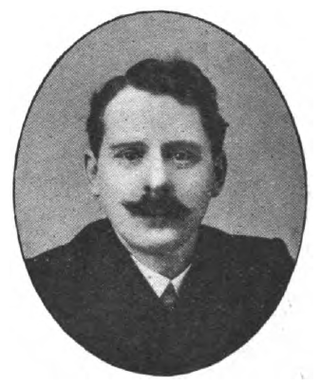
Unison is a British trade union. Along with Unite, Unison is one of the two largest trade unions in the United Kingdom, with over 1.2 million members who work predominantly in public services, including local government, education, health and outsourced services.

The Scottish Trades Union Congress (STUC) is the national trade union centre in Scotland. With 40 affiliated unions as of 2020, the STUC represents over 540,000 trade unionists.
In British politics, an affiliated trade union is one that is linked to the Labour Party. The party was created by the trade unions and socialist societies in 1900 as the Labour Representation Committee and the unions have retained close institutional links with it.

The Transport and General Workers' Union was one of the largest general trade unions in the United Kingdom and Ireland – where it was known as the Amalgamated Transport and General Workers' Union (ATGWU) to differentiate itself from the Irish Transport and General Workers' Union – with 900,000 members. It was founded in 1922 and Ernest Bevin served as its first general secretary.
The National and Local Government Officers' Association was a British trade union representing mostly local government "white collar" workers. It was formed in 1905 as the National Association of Local Government Officers, and changed its full name in 1952 while retaining its widely used acronym, NALGO. By the late 1970s it was the largest British white collar trade union, with over 700,000 members. It was one of three unions which combined to form UNISON in 1993.
The Workers' Union was a general union based in the United Kingdom, but with some branches in other countries. During the 1910s, it was the largest general union in the UK, but it entered a rapid decline in the 1920s, and eventually became part of the Transport and General Workers' Union (TGWU).
The Miners' Federation of Great Britain (MFGB) was established after a meeting of local mining trade unions in Newport, Wales in 1888. The federation was formed to represent and co-ordinate the affairs of local and regional miners' unions in England, Scotland and Wales whose associations remained largely autonomous. At its peak, the federation represented nearly one million workers. It was reorganised into the National Union of Mineworkers in 1945.

The Sheffield Trades and Labour Council, usually known as the Sheffield Trades Council, is a labour organisation uniting trade unionists in Sheffield.

The Amalgamated Society of Boilermakers, Shipwrights, Blacksmiths and Structural Workers (ASB) was a trade union in the United Kingdom. Many of its members worked in shipbuilding, in which industry it was the leading trade union, while over time it also developed strength in engineering and construction.

The International Federation of Trade Unions was an international organization of trade unions, existing between 1919 and 1945. IFTU had its roots in the pre-war IFTU.

The Irish Trades Union Congress (ITUC) was a union federation covering the island of Ireland.
The Alliance for Finance is a trade union federation in the United Kingdom.

Sir Ben Turner CBE was an English trade unionist and Labour Party Member of Parliament (MP) for Batley and Morley from 1922 to 1924 and from 1929 to 1931.
The Organisation of Scottish Labour is a body established under the national rules of the UK Labour Party.

The Trades Union Congress (TUC) is a national trade union centre, a federation of trade unions that collectively represent most unionised workers in England and Wales. There are 48 affiliated unions with a total of about 5.5 million members. Paul Nowak is the TUC's current General Secretary, serving from January 2023.

Isaac Haig Mitchell was a Scottish trade unionist.

William Archibald Appleton was a British trade union leader.
The General Council of the Trades Union Congress is an elected body which is responsible for carrying out the policies agreed at the annual British Trade Union Congresses (TUC).
Ged Nichols is a British trade union leader.










